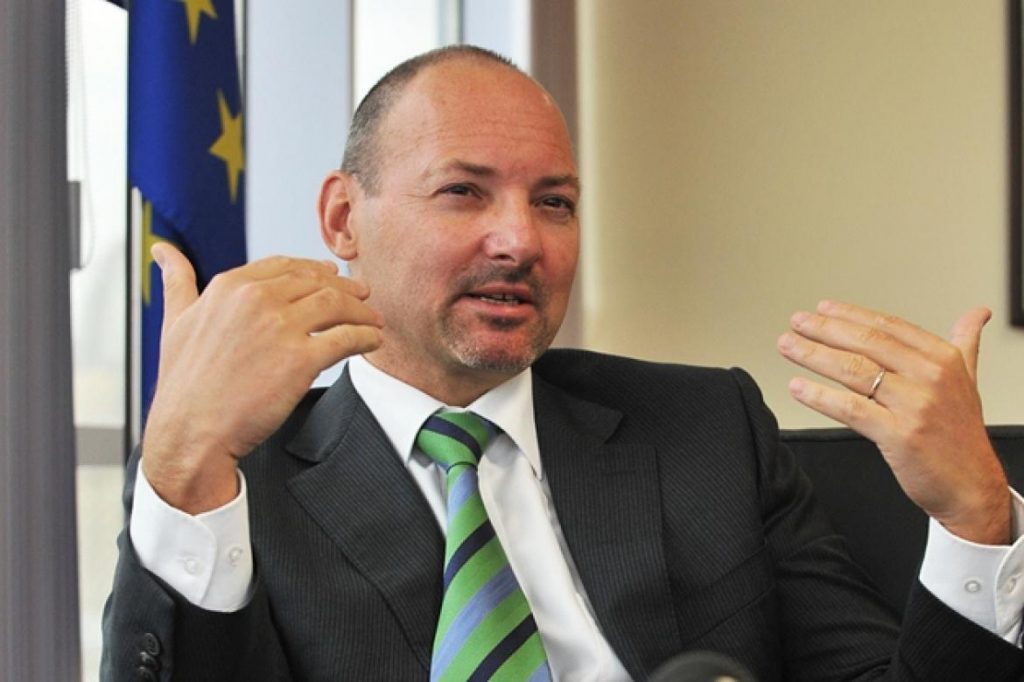The European Union has invested heavily in election support in Myanmar, among other things through funding the STEP Democracy programme. An interview with EU Ambassador Roland Kobia about his expectations, the challenges and trade as a means to foster economic and political dialogue.
What do you hope and expect from the electoral process?
“The European Union was the first international actor to take the bull by the horns and start supporting the technical preparations of the forthcoming 2015 general elections. We have been assisting the Union Electoral Commission (UEC) since February 2013, and we are on the long-term as our programme will last until 2017. We are promoting what everyone hopes will be credible, transparent and inclusive elections. In spite of international support, it is important to recall that Myanmar is a sovereign and independent country. We hope that Myanmar will go as quickly as possible, but democracy cannot be imposed from abroad. It must be homegrown and nurtured, which often requires an incubation period that varies in length.”
EU election observers are going to monitor the elections. Can you tell us a little bit about that? How many are there? What are they looking for? What is their level of access?
“The EU has been officially invited to observe the elections by the Union Election Commission. This is the first time in the history of Myanmar, and we take it as a good sign. EU observers are neutral and impartial. They will not take sides, nor interfere in the electoral process in any way, nor will they take instructions from any party.
EU long-term observers were deployed to all states and regions on 11 October. They have now been joined by around 60 short-term observers. Together, the EU Election Observation Mission will be the biggest international observation mission in Myanmar. In total more than 150 observers will be deployed all 14 states and regions in the country. I have decided myself to spend Sunday 8 November to observe the elections and make my own opinion. There will also be a high-level delegation of Members of the European Parliament and their teams, which is a further important sign of EU’s commitment and interest in these elections.”
Support more independent journalism like this. Sign up to be a Frontier member.
A number of challenges have arisen. The voter lists reportedly are problematic, and there are doubts about the impartiality of the Union Election Commission. How does the EU delegation view the challenges that Myanmar, a fledgling democracy, is facing?
“When it comes to issues relating to the elections, the EU Chief Observer, Alexander Graf Lambsdorff (a Vice-President of the European Parliament), has the authority to independently present the findings of the EU election observation mission soon after the elections. The EU observers will then publicly report also on broader issues, such as the legal and political context. This will include contentious issues such as the voter lists and the role of the UEC.”
Some argue that the EU has lost some of its diplomatic leverage because the sanctions have been dropped. How do you view the tension between EU’s human rights and democracy agenda and the economic realities?
“Contrary to some other countries, for decades the trade and investment relations between the EU and Myanmar were virtually non-existent because of the EU sanctions. The political decision to lift the EU sanctions was taken unanimously and recently by all the Member States of the EU, so it was an inclusive and matured decision. The EU also decided to open a full-fledged delegation only after the transition started.
Trade creates opportunities, as it also means political and economic dialogue with the country. If sanctions are there, doors to discussions are largely closed, and the power of the potential cannot be activated. We are here to build bridges, not walls. On the contrary, the fact that European companies can invest if they decide so, but under certain conditions, creates opportunities to discuss and address improvements required in Myanmar.
For Myanmar’s medium and long-term development, much more is needed in terms of commercial development. Responsible private actors will play a key role in Myanmar’s development. We do not live in silos; we live in a world where most issues are inter-connected. Democracy and human rights are multi-layered concepts. Through trade, we can promote free-market and the rule of law, as well as human rights and democracy.”



